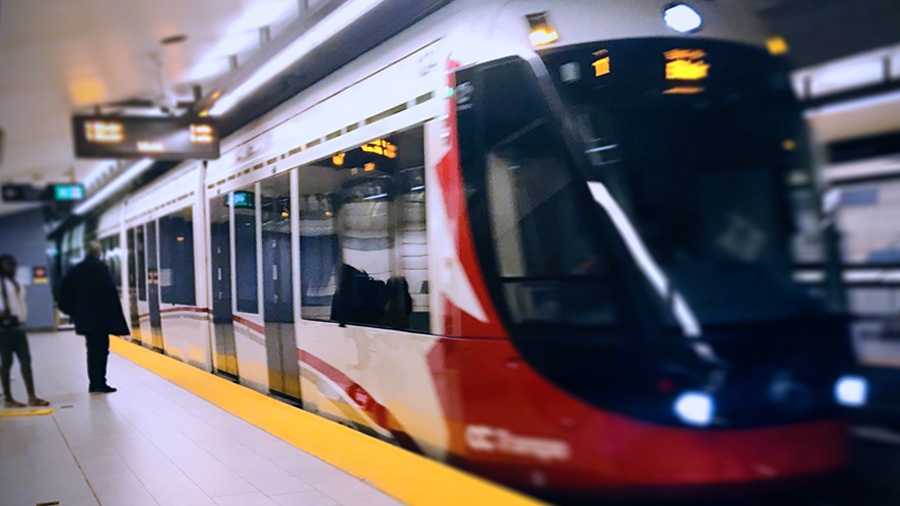The City of Ottawa is exploring the idea of imposing a levy on private parking spots to help fund OC Transpo operations.
The Private Parking Levy is one option an internal working group comprising of Mayor Mark Sutcliffe, three councillors and city staff are exploring ahead of the 2025 budget debate, as the transit service faces a multi-million dollar deficit.
The Transit Long Range Financial Plan forecasts a $8.6 billion gap in transit funding over the next 30 years. OC Transpo reported a $29.3 million deficit in 2023, and posted a $6.2 million deficit in January-March 2024.
In November, council appointed a working group of elected officials and city staff to explore “all mitigation levers and options.” In a memo to council, Chief Financial Officer Cyril Rogers says the working group has been exploring transit fares, the “sustainability and equity lens review of discounted passes,” the transit levy, operating costs, the Urban Transit Area and a Private Parking Levy.
“Much of the work completed to date has been focused on diving deeper into each lever to get a better understanding of the financial framework, analyze trends, and assess the impacts of various scenarios/options, supplemented by comparisons to other municipalities,” Rogers said.
“This analysis has provided some critical insights for the working group, and input to the 2025 Budget Directions report recommendations, particularly for transit fares, discounted passes and transit levy target. Staff continue to explore and assess operating costs and opportunities for greater efficiencies, to be included in the draft budget that will be tabled in November.
Rogers says a review of a Private Parking Levy as an additional revenue option is “ongoing,” with the results to be provided to council at a future date.
The memo does not describe what a Private Parking Levy would look like. Leading Mobility describes a Private Parking Levy as “a tax levied on off-street, privately owned and operated parking sales or spaces.”
In Montreal, a parking levy is applied to parking lots of non-residential buildings.
Rogers notes levers could be implemented within a “year or two to solve the more immediate financial pressures as staff continue to advance work on the longer-term solutions.”
Other options proposed during a technical briefing last fall to help fund OC Transpo included a municipal vehicle registration fee, ride-hailing fees, land value capture, the sale of development rights at transit stations, mobility charges and road tolls. Those ideas have not been explored, according to Rogers.
In May, a report by Leading Mobility recommended the city impose a new vehicle levy on license plates to fund public transit. The report also looked at an off-street parking space levy, saying a $50 levy could generate $101.7 million a year in revenue for OC Transpo.
In 2022, former Mayor Jim Watson emailed the Minister of Housing and Municipal Affairs to ask the Ontario government to amend the Ontario Municipal Act to allow municipalities to fund transit from parking revenues and licensing fees. Watson also requested Ottawa have the authority to implement road user fees, congestion charges, private parking levies, and high emitting car registration fees as part of the city’s Energy Evolution Strategy.
Ottawa’s Energy Evolution Strategy calls for the city to increase transit usage by seven per cent by 2050.
Ontario would have to amend the Ontario Municipal Act to allow the city to charge a Private Parking Levy or implement road tolls and mobility charges.

